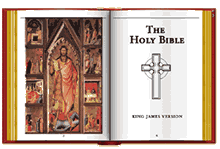November 30 - Matthew 4:18-22

Daily Reading & Meditation
Thursday (11/30): "Follow me, and I will make you fishers of men"
Scripture: Matthew 4:18-22
18 As he walked by the Sea of Galilee, he saw two brothers, Simon who is called Peter and Andrew his brother, casting a net into the sea; for they were fishermen. 19 And he said to them, "Follow me, and I will make you fishers of men." 20 Immediately they left their nets and followed him. 21 And going on from there he saw two other brothers, James the son of Zebedee and John his brother, in the boat with Zebedee their father, mending their nets, and he called them. 22 Immediately they left the boat and their father, and followed him.
Meditation: What is God's call on your life and are you ready to respond? When Jesus began his ministry he went every where he could — the streets, towns, hills and lakeside of Galillee — to speak to people about the kingdom of God. He chose as his closest friends and coworkers those who were ready to follow as his disciples and he gave them an unusual mission — "to catch people for the kingdom of God". What kind of disciples did Jesus choose? Smelly fishermen! In the choice of the first apostles we see a characteristic feature of Jesus' work: he chose very ordinary people. They were non-professionals, had no wealth or position of power or fame in society. They were chosen from the common people who did ordinary things, had no special marks of education, and no social advantages. Jesus wanted ordinary people who could take an assignment and do it extraordinarily well. He chose these individuals, not for what they were, but for what they would be capable of becoming under his direction and power. When the Lord calls us to be his disciples, we must not think we have nothing to offer him in exchange. The Lord takes what ordinary people, like us, can offer and uses it for greatness in his kingdom. Do you believe that God wants to work through and in you for his glory?
Jesus speaks the same message to us today: we will "catch people" for the kingdom of God if we allow the light of Jesus Christ to shine through us. God wants others to see the light of Christ in us in the way we live, speak, and witness the joy of the gospel. Paul the Apostles says, "But thanks be to God, who in Christ Jesus always leads us in triumph, and through us spreads the fragrance of the knowledge of him everywhere. For we are the aroma of Christ to God among those who are being saved and among those who are perishing" (2 Cor. 2:15).

